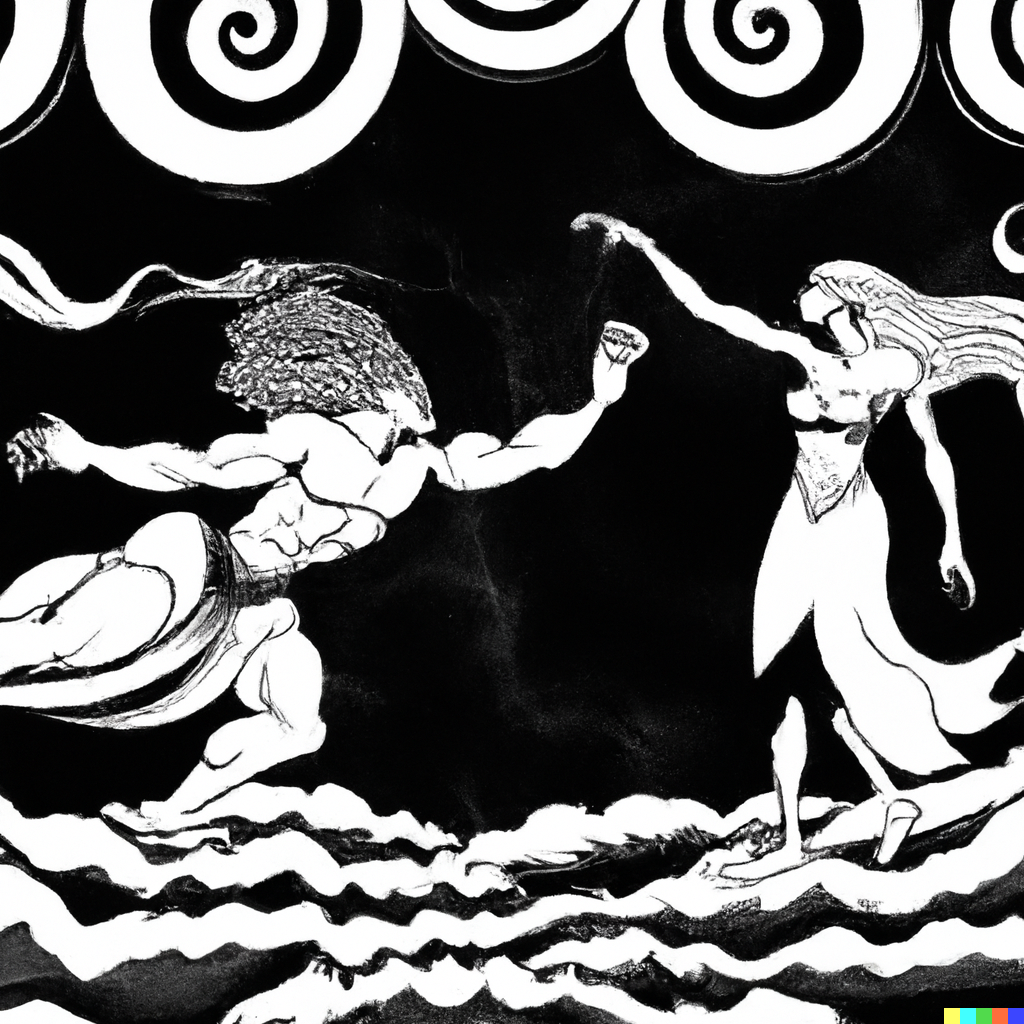I mean, if today i.e. is Sunday then someone long time ago should have said “Today will be Sunday” for the first time in a period from today that is multiple of seven. I was assuming that it was Pope Gregory XIII in October 1582, but looks like he is not. I failed in googling and duckduckgoing out the answer, so I ask for Lemmy’s collective wisdom!
EDIT: so question is not about the origin of 7-day week and sequence of weekday names, but about the exact reference point (day) of today’s weekday countdown. From when have people stopped adding or ommiting any adjustment ‘out-of-week’ days (like in Babylon or Rome) and kept counting to seven till today? In other words, there should be a point exactly N x 7 days ago from which the 7-day countdown has not been interrupted. Or at least the earliest known day in history that everyone on Earth agreed upon as a reference point
EDIT 2: Solved by https://lemmy.world/comment/1852458 Thanks everyone!
From weeks in general: https://en.wikipedia.org/wiki/Week
The modern seven-day week can be traced back to the Babylonians, who used it within their calendar. Other ancient cultures had different week lengths, including ten in Egypt and an eight-day week for Etruscans.
There’s probably a rabbit hole to go down to get into the mindset of who decided that a seven day week was a better system then what the neighbors are using. Babylonian astronomy and mathematics at the time likely played a role.
https://en.wikipedia.org/wiki/Babylonia
And overall there’s a rich history to how we divide up the years in calendar reform.
https://en.wikipedia.org/wiki/Calendar_reform
Personally, I’ve fallen in love with the international fixed calendar. It proposes getting rid of the 30 days hath November nonsense and making all months 28 days. Take all the month-ends and combine them into a new month Sol, and since 28 × 13 is 364, create a new holiday called world day that is part of no week, no month, just doin’ it’s own thing. Add on a monthless leap day when needed and like magic, months are now a functional unit of measurement. 1 month = 28 days.
On the link for the wikipaedia "week"page, lower down, under “Christian Europe”, it mentions: “The seven-day weekly cycle has remained unbroken in Christendom, and hence in Western history, for almost two millennia, despite changes to the Coptic, Julian, and Gregorian calendars, demonstrated by the date of Easter Sunday having been traced back through numerous computistic tables to an Ethiopic copy of an early Alexandrian table beginning with the Easter of 311 CE.”
So I guess, Easter Sunday in 311CE, someone called a big meeting and said something equivalent to “Right lads? All agreed? Today is Sunday, everywhere. Got that? Go and tell everyone you know. We’re synchronising everyone’s calendars.”
Oh, this paragraph somehow escaped my attention 😯 Big thanks for pointing out!
/u/[email protected] here is your answer.
(pls let me know if the tag worked)
A proper tag would be @[email protected]
deleted by creator
As a programmer that whole month less day thing sounds like a total nightmare.
I also love this calendar. It’s important to remember that “what day of the week is it” is an important question for at least two world religions, though, so months won’t always start on the same day of the week from year to year — but every month in a given year will.
Ok, let me rephrase your rephrase to be what question I think you’re trying to ask.
At some point we had decided on a seven day week with week names. That’s fine. But we must also have decided at some point that today was Wednesday in this system.
So I think you’re asking “what is the first day we all agree was definitely a Sunday, such that all Sundays after were based on that”. Or put another way, at what point did the days of the week get locked to the days of our year.
I don’t have that answer, but your question confused me, so I’ve reworded it.
Yeah, thanks, that’s pretty much it! Except we cannot really make days of the week get locked to the days of our year because 365 is not divisible by 7, and we’re adding 1 day to February every 4th year on top of that.
Your phrasing on this post was confusing af. The other poster clarified it and then you just made it confusing af again with this response. Thanks
And every 400 year we don’t add the extra day, except every 2000 year when we do it anyway.
the numbers for this are skip every 100 years except every 400 years but yeah it’s kinda wack
Our idea of a week can probably be traced back directly to early Israelite religion. There’s good evidence of a 7-day cycle by the 6th century BCE, maybe as early as the 9th. They cared which day was which because the 7th day was a holy day of rest (still practiced as Shabbat), matching up with the supposed final day of creation. Jews have been keeping this practice for a very long time, so I would guess that we’re still aligned with the days the ancient Israelites were following that they thought matched up with the days of creation. Unfortunately, the exact nature of what day they decided was which is lost to time.
I believe most weekday names as we know them in English and many other northern European languages derive from the vikings.
- Monday, not sure?
- Tuesday = Tir’s day, Tir/Thyra being a woman in the Nordic mythology.
- Wednesday = Wotan’s day, also “onsdag” in Nordic languages, Wotan=Odin.
- Thursday = Thor’s day, also “torsdag” in Nordic languages.
- Friday = “fredag”, from Frey/Freia in the Nordic mythology.
- Saturday = lørdag, not sure.
- Sunday = literally the day of the sun.
Monday = Moon day. In Spanish, it’s “lunes”.
Well, the question is not about the origin and sequence of weekday names, but about the first day in history of uninterrupted count of 7-day cycles which leads to today’s state of the week. Added this to the post.
7 days is about how long a lunar “phase” is. A full lunar cycle is 28 days and there are 4 phases. Counting 7-day cycles is older than history. Counting moons (28-day cycles) is older than history.
Here is the problem, because actual lunar cycle is 29.5 days long, so if we simply count its phases with whole 7 days it will quickly run out of sync. Therefore Babylonians and other ancient folks added a couple of ‘out-of-week’ days every now an then to compensate the difference.
The moon has been around a long long time. Everyone figured that out long before recorded history. Every culture dealt with it differently. Each phase was 7.4 days long. So each phase was countable as a 7 day week but an adjustment day is needed somewhere. It could be every 2 weeks, it could be end of the month, whatever. But the 7 days comes from the amount of time it takes to go from one visible lunar phase to another.
But the 7 days comes from the amount of time it takes to go from one visible lunar phase to another
I’m not arguing with that, but my question is different: where in history is the exact reference point (day) of today’s weekday countdown? From when have people decided to stop adding or subtracting adjustment days and kept counting till today? The might have been some shifts along the way, but there should be a point exactly N x 7 days ago from which the 7-day countdown has not been interrupted. Or at least the earliest known day in history that everyone on Earth agreed upon as a reference point.
You have to go back on a per-calendar basis. The Chinese calendar will have a different answer to this question than the European calendar, for example. It is likely that different calendar systems came up with continuous 7-day cycles at different times and in different cultures without referring to each other, because the 7-day cycle maps to their shared observations of the moon cycles.
Saturday is Saturn’s Day
Saturday in nordic languages Lördag/lørdag is simply lögardagen, the day in the week when you took a bath.
I believe the Vikings adapted them from the Romans. The Greeks and Romans also had a day for the Sun and a day for the a Moon. They obviously never changed the Month from their Latin roots. July and August are named after Julius Caesar and Caesar Augustus.
Don’t know about Saturday, but “lørdag” comes from the Norse word for “washing day” because the vikings were surprisingly hygienic for their time, and bathed/washed themselves once a week.
“Saturday” references to the planet “Saturn”.
Here is a video about the origin of the weekday’s names in different languages: https://www.youtube.com/watch?v=gifimOF5a_U
I addition to that, here is a video which explains how the months got their names: https://www.youtube.com/watch?v=Y9iOt48bTw4&list=PL5x1QB-VRuDtHCWcuSx0DgJr2mnuNXkSB&index=4 This channel has very interesting videos about the ethymological origins of different things. It’s worth watching.
Edit: spelling
Here is an alternative Piped link(s): https://piped.video/watch?v=gifimOF5a_U
https://piped.video/watch?v=Y9iOt48bTw4&
Piped is a privacy-respecting open-source alternative frontend to YouTube.
I’m open-source, check me out at GitHub.
I can’t see any evidence that it wasn’t Pope Gregory on Oct 15 1582. Which was a Friday, I guess? The previous day, October 4th was a Monday and a Thursday but the Gregorian calendar standardized it.
From what I could quickly find online it says the 7 day week started with the Babylonians waaaay back circa 2100 BCE. The days had different names then, but that seems to be when it started at least.
Wikipedia says at least as far back as 6th century BC Judaism
Your question is not clear, post-edit. Can you rephrase?
Ok, I’ve rephrased the edit section once more








